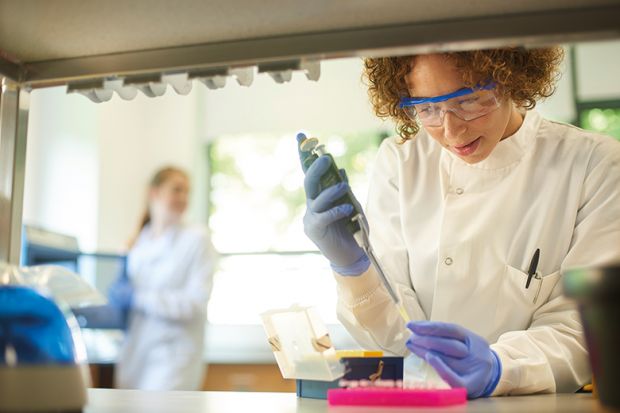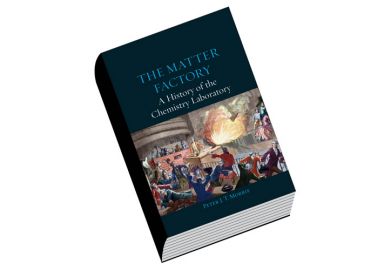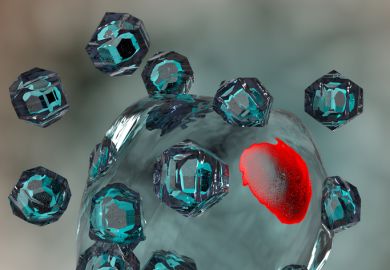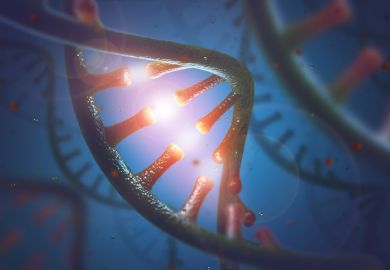American chemists increasingly seem to feel the need to publish their memoirs. Most are of limited appeal, with Carl Djerassi’s The Pill, Pygmy Chimps and Degas’ Horse being the wonderful exception. Bernie Bulkin is no Djerassi and his scientific achievements are modest compared with others who have attempted this genre, usually Nobel laureates or contenders for that prize. However, there is one assertion of real interest in this book: Bulkin’s claim that our knowledge of chemistry was 97 per cent complete by the year 2000.
He is not the first to observe that chemistry is a mature discipline, but his line of argument is interesting. In 1950, many basic problems in chemistry were unsolved, including issues of chemical structure, of chemical theory in relation to quantum mechanics and of the kinetics of chemical reaction. By the year 2000, Bulkin argues, all of these problems had been solved. All that is left for chemistry to do is to look for applications in disciplines such as genetics and medicine. There are no major discoveries to be made and there will be no big surprises, except perhaps in catalysis.
To much of which I say: rubbish! Although he demonstrates significant progress, Bulkin vastly overestimates the extent to which his basic problems have been solved. Take chemical kinetics. If this was 97 per cent understood, we would be able to calculate the rate of most chemical reactions ab initio, without the input of experimental data, yet we are a long way from that point. There is also a very substantial way to go before we can accurately predict the structure or the phase behaviour of 97 per cent of chemical compounds.
I also hope that Bulkin underestimates the ingenuity and invention of chemists yet to come, and the potential for developments in instrumentation and theory. Big advances in chemistry may in future not always be made in chemistry departments, but who cares? The CRISPR-Cas9 gene-editing system is one of the hottest properties in molecular biology, but what it does is chemistry, complex and elegant chemistry. Prediction in science can be unwise. Witness thesis adviser Philipp von Joly, who in 1874 told a young Max Planck to avoid theoretical physics because “there is not much left to do”. Then along came quantum mechanics and relativity theory.
Most of Solving Chemistry charts Bulkin’s scientific career and progress from school to undergraduate, graduate student (Purdue University) and postdoc (ETH Zurich), and then to faculty member at Hunter College and the Polytechnic Institute, both in New York City. For each stage he describes clearly the particular chemical problems that he was engaged with and how he tackled them, providing along the way enough chemical information to let an interested non-chemist follow the story. In 1985 Bulkin joined the BP Group in Cleveland, Ohio, later moving to the UK. An important area of interest was the improved purification of motor fuels to meet tightening environmental requirements. The book concludes in 2003, at the end of Bulkin’s four-year period as BP’s chief scientist. But little of the narrative is of wide interest or significance, so I struggle to see who will pay money to read it.
Richard Joyner is emeritus professor of chemistry at Nottingham Trent University.
Solving Chemistry: A Scientist’s Journey
By Bernard J. Bulkin
Whitefox Publishing
240pp, £14.99
ISBN 9781912892068
Published 28 February 2019
POSTSCRIPT:
Print headline: Is this the end of chemistry?
Register to continue
Why register?
- Registration is free and only takes a moment
- Once registered, you can read 3 articles a month
- Sign up for our newsletter
Subscribe
Or subscribe for unlimited access to:
- Unlimited access to news, views, insights & reviews
- Digital editions
- Digital access to THE’s university and college rankings analysis
Already registered or a current subscriber? Login








